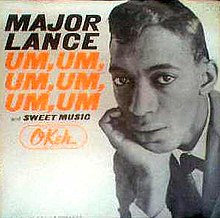"I Really Don't Want to Know" is a popular song written by Don Robertson (music) Howard Barnes (lyrics). The song was published in 1953.
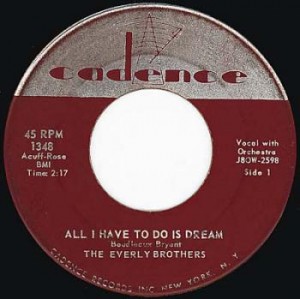
"All I Have to Do Is Dream" is a song made famous by the Everly Brothers, written by Boudleaux Bryant of the husband-and-wife songwriting team Felice and Boudleaux Bryant, and published in 1958. The song is ranked No. 141 on the Rolling Stone magazine's list of The 500 Greatest Songs of All Time. The song is in AABA form.

"Walk On By" is a song written by Burt Bacharach and Hal David for singer Dionne Warwick in 1963. Warwick's recording of the song peaked at number 6 on the US Billboard Hot 100 and number 1 on the Cash Box Rhythm and Blues Chart In June 1964 and was nominated for a 1965 Grammy Award for the Best Rhythm and Blues Recording.

"The End of the World" is a pop song written by composer Arthur Kent and lyricist Sylvia Dee, who often worked as a team. They wrote the song for American singer Skeeter Davis, and her recording of it was highly successful in the early 1960s, reaching the top five on four different charts, including No. 2 on the main Billboard Hot 100. It spawned many cover versions.
"Don't Break the Heart That Loves You" is an American song written by Benny Davis and Murray Mencher. The song was a success for two artists in two different genres: Connie Francis in the pop field in 1962 and Margo Smith as a country version in 1978.

"Walk Right In" is a country blues song written by musician Gus Cannon and originally recorded by Cannon's Jug Stompers in 1929 by RCA Victor. In 1959, it was included on the compilation album The Country Blues. Another version of the song by the Rooftop Singers, with the writing credits allocated to group members Erik Darling and Bill Svanoe, became an international hit in 1963.
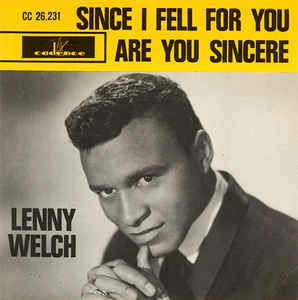
"Since I Fell for You" is a blues ballad composed by Buddy Johnson in 1945 that was first popularized by his sister, Ella Johnson, with Buddy Johnson and His Orchestra.
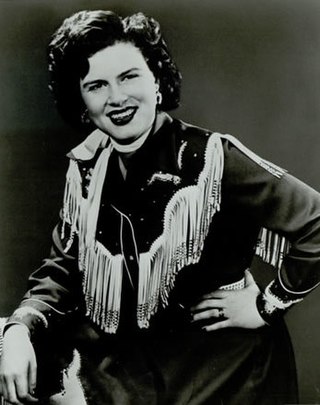
The discography of American music artist Patsy Cline consists of three studio albums, 24 singles, six extended plays, one compilation album, six other charted songs and one album appearance. Cline's discography contains material released during her lifetime. Her first recordings took place under the direction of Four Star Records. Cline's first single, "A Church, a Courtroom, Then Goodbye," was released in July 1955. Four Star issued 17 singles during Cline's four years recording with them. However, only "Walkin' After Midnight" (1957) became a major hit, reaching number 2 on the Billboard country songs chart and number 12 on the Billboard pop music chart.
"You Were on My Mind" is a popular song written by Sylvia Fricker in 1961. It was originally recorded by Ian & Sylvia, but better known versions were recorded by We Five and Crispian St. Peters.

"My Special Angel" is a popular song by Jimmy Duncan, published in 1957.
"I Will" is a song written by Dick Glasser.

"Hurt" is a 1954 song by Jimmie Crane and Al Jacobs. "Hurt" was originally performed by Roy Hamilton, whose version peaked at number eight on the R&B Best Seller chart and spent a total of seven weeks on the chart. A version by Ricky Denell also received considerable radio airplay in 1954 on pop radio stations. The song is considered to be the signature hit of Timi Yuro, whose version went to number four on the Billboard pop chart in 1961. Elvis Presley’s 1976 version reached the top 40 on the Billboard Hot 100 and the top 10 on Billboard’s Hot Country Singles chart. Juice Newton's 1985 version scored number one on Billboard's Country chart.

Love Story is the twenty-seventh studio album by American pop singer Andy Williams that was released on February 3, 1971, by Columbia Records. This was another in his series of cover albums, but the title track, subtitled "Where Do I Begin", was the one song included that he originated.

You've Got a Friend is the twenty-eighth studio album by American pop singer Andy Williams, released in August 1971 by Columbia Records. The album bears a striking resemblance to the Johnny Mathis album You've Got a Friend released that same month. Besides sharing their name, the two albums are both made up of covers of easy listening hits of the time, with 11 songs each, and the two albums have seven songs in common that are positioned in a similar order.

You've Got a Friend is an album by American pop singer Johnny Mathis that was released on August 11, 1971, by Columbia Records. The phrase "Today's Great Hits" can be found above the title on both sides of the record jacket as well as both sides of the LP label as if to emphasize that this is essentially an album covering songs that were recently on the charts. This was a common practice of many vocalists of the period, so much so in fact that fellow Columbia artist Andy Williams also released an album titled You've Got a Friend in August 1971 on which he coincidentally covers seven of the 11 tracks that Mathis recorded for this album.

Song Sung Blue is an album by American pop singer Johnny Mathis that was released on September 13, 1972, by Columbia Records and featured his renditions of mostly recent chart hits.

When Will I See You Again is an album by American pop singer Johnny Mathis that was released in March 1975 by Columbia Records and was again predominantly composed of covers of recent hit songs by other artists.
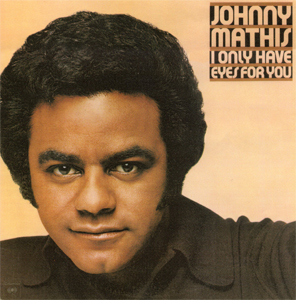
I Only Have Eyes for You is an album by American pop singer Johnny Mathis that was released on May 10, 1976, by Columbia Records and included two new songs, "Yellow Roses on Her Gown" and "Ooh What We Do", which was written specifically for him, as well as a contemporary arrangement of the 1934 title track that foreshadowed his recordings of standards that incorporated a disco beat a few years later.
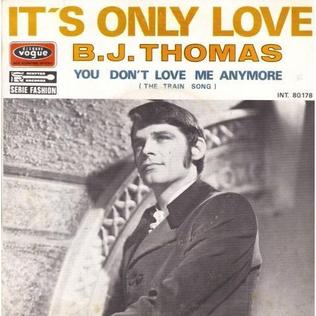
"It's Only Love'" is a 1969 song by B. J. Thomas from his LP Young and In Love. Elvis Presley made the song a top hit in the UK, reaching No. 3 in 1980.

"Don't Throw It All Away" is a song written by British musician Gary Benson and first released by the Shadows on their 1975 album Specs Appeal. Benson released his version as a single later the same year, which reached number 20 on the UK Singles Chart in the fall of 1975.
